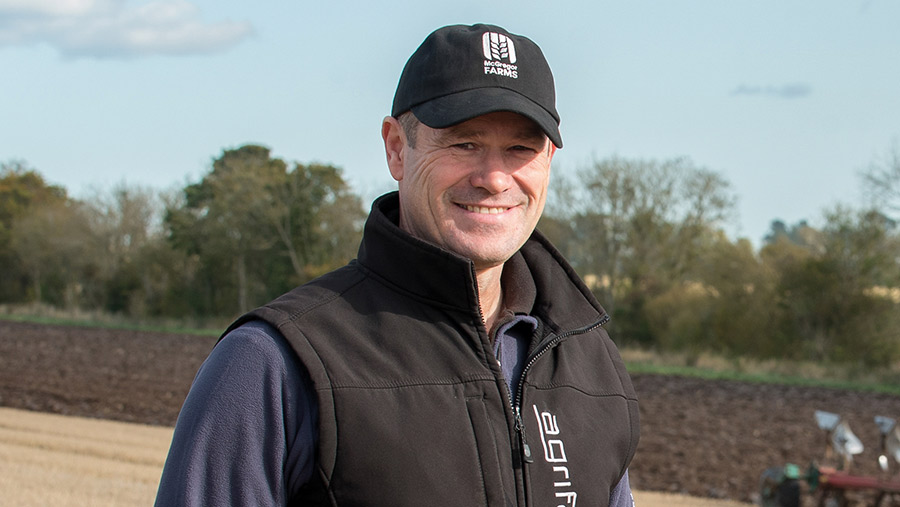Farmer Focus: Crops back after battling frost and winds
 © Angus Findlay
© Angus Findlay We have seen a huge improvement in our crops in the past month. Crops went from frost- and wind-ravaged to dark green and full of potential after welcome rainfall in May and some very pleasant sunshine in June.
After a season of weather extremes one can only wonder what the weather gods have in store for us as we approach harvest.
Oilseed rape has flowered for an unprecedented length of time, with some crops still quite yellow well into June.
The bounce back of this crop never ceases to amaze, and with forward prices looking strong its place in the rotation is critical despite the challenges of growing it.
Winter wheat and barley both suffered in the dry and very cold April but despite this they’re looking quite good, with low disease levels in treated crops.
See also: Farmer Focus: Concerned at the amount of grain left in store
Yellow rust, however, is very prevalent in a number of untreated variety plots in our on farm trials – once again emphasising the importance of a tailored fungicide programme.
Spring crops of barley, beans, and oats all look well, after being drilled into good seed-beds before the cold, dry April.
“Regenerative agriculture” seem to be the buzz words of 2021. I’m not particularly a fan of the wording as it suggests something needs to be renewed or restored after being damaged or broken.
I’m also not so naive to think that improvements to current farming practices cannot be made for the greater good of the environment, but I do question the impact on farm profitability.
We seem quite happy to place more burden on our British growers and livestock producers with multiple layers of bureaucracy, all in the name of improving standards while exporting our environmental footprint.
Any shortfall will be imported, potentially from countries with lower standards.
We don’t have to look very far to see this already happening with the banning of neonicotinoid insecticides and – surprise, surprise – rapeseed being imported after being treated with the very products British farmers are banned from using.


